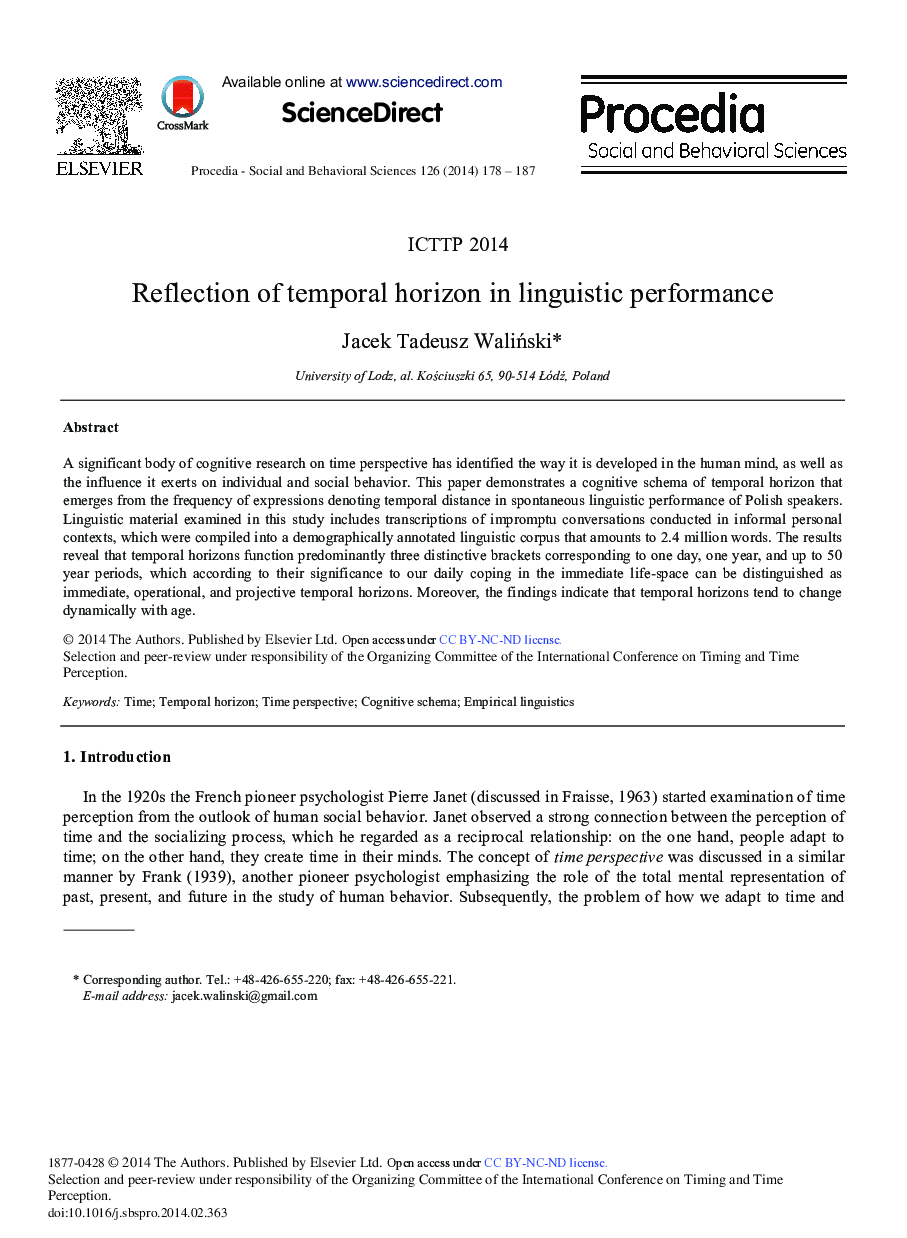| Article ID | Journal | Published Year | Pages | File Type |
|---|---|---|---|---|
| 1114155 | Procedia - Social and Behavioral Sciences | 2014 | 10 Pages |
A significant body of cognitive research on time perspective has identified the way it is developed in the human mind, as well as the influence it exerts on individual and social behavior. This paper demonstrates a cognitive schema of temporal horizon that emerges from the frequency of expressions denoting temporal distance in spontaneous linguistic performance of Polish speakers. Linguistic material examined in this study includes transcriptions of impromptu conversations conducted in informal personal contexts, which were compiled into a demographically annotated linguistic corpus that amounts to 2.4 million words. The results reveal that temporal horizons function predominantly three distinctive brackets corresponding to one day, one year, and up to 50 year periods, which according to their significance to our daily coping in the immediate life-space can be distinguished as immediate, operational, and projective temporal horizons. Moreover, the findings indicate that temporal horizons tend to change dynamically with age.
